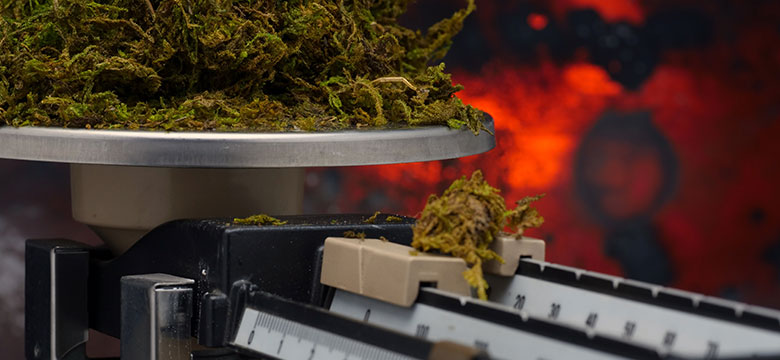Three months into the first year of cannabis legalization in California, the cannabis industry is experiencing growing pains. The transition to the new regulatory framework imposed by Proposition 64 is proving to be challenging, and many businesses are getting left behind as they struggle to obtain licenses. As a result, the supply of cannabis to consumers is getting pinched–and there’s no relief in sight.
Last Year’s Legal Cannabis Supply Is Running Low
The vast majority of buds now being sold were harvested last year, and can legally be sold until July 1, 2018. But that supply is running out, and there aren’t enough legal plants on the market to compensate. The reason is that not enough growers have obtained their licenses, and because of the new seed to sale tracking system, only legally grown cannabis can enter the retail market.
According to a recent report by the California Growers Association, by late February 2018 less than one percent of California’s growers had obtained licenses. Out of an estimated 68,000 cultivators, only 534 are legally able to put their plants on the market. The number of licensed growers will continue to increase, but not a rate sufficient to plug the holes in the market.
The Cannabis Supply Chain Can’t Handle More Product
Even if more legal cannabis appears on the market, other bottlenecks in the supply chain have become apparent. All cannabis must pass through a distributor before it can land with a retailer. Distributors must follow precise procedures, such as providing a product sample to a testing company for a purity analysis. Only once the tester approves it, and the distributor packages and taxes it, may the product legally arrive at a retailer.
The problem is, there are only 129 distributors that hold a state license–much less than is needed to process a harvest. Furthermore, only 21 testing facilities have obtained a license. If a significant amount of cannabis reaches distributors soon, it may get held up at overwhelmed testing facilities before it can be sold.
Will Senn, a cannabis entrepreneur whose company Urbn Leaf operates three dispensaries, thinks consumers will soon start looking elsewhere for their buds: “The black market will balloon if we can’t get legal, licensed producers to step into the industry.” Unlicensed producers across the state will be eager to meet this demand, and it’s unclear how the authorities can stop them.
Small Producers Need Help with the Licensing Process
The Achilles heel of Prop 64 is that it gives local governments the authority to ban recreational cannabis activities. To operate legally, any cannabis business must also have a permit from the local government. Thus, cultivators in several popular growing locations such as Calaveras County are unable to get a state license because of local prohibitions against growing adult-use cannabis.
Another issue is cost. Many small producers simply don’t have the cash to pay the fees and to hire a lawyer to guide them through the complex local permitting and state licensing process. No reforms are on the horizon, but as the California Growers Association report concludes: “The current system will not achieve its goals without fundamental and structural changes that allow small and independent businesses to enter into compliance.”
At McElfresh Law, we are dedicated to supporting the California cannabis industry through effective counsel and aggressive advocacy. Whether you are an industry veteran or a budding entrepreneur, a California marijuana lawyer can help your business succeed.
To learn more about our services and to schedule a consultation, call us today at (858) 756-7107.
California marijuana laws change frequently. For updated information, see the following pages: Medicinal Uses of Marijuana and Recreational Marijuana Business
